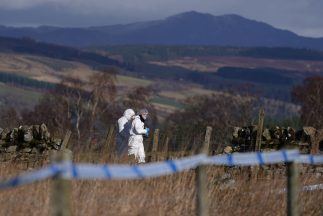A public awareness campaign to reduce the gap between rhetoric and reality in tackling climate change is needed by the Scottish Government, it has been claimed.
Reform Scotland has made a number of policy recommendations aimed at helping ministers reduce Scotland’s energy demands.
The Powering Ahead: Decarbonising Scotland’s Energy paper argues that while Scotland excels in its use of renewables for electricity, the Government does not go far enough to reverse the trends of oil and gas with usage increasing for heating and transport.
The report, written by Stuart Paton, chair at H2Green, and Reform Scotland’s research director Alison Payne, argues the lines are blurred on the boundaries between energy and electricity, creating a false impression that Scotland is powered solely by renewables.
It creates a sense of complacency and urgency, the report said.
The Government has been urged to adopt an education campaign to help the public understand what they can individually do to help the country reach its net-zero targets.
Ministers are also encouraged to escalate plans to ban gas heating in new buildings and the sale of new gas cookers.
A pay-as-you-drive road pricing plan has been proposed by the think tank, as it recommends the abolition of the road tax and vehicle excise duty.
Mr Paton, who is a former chief executive of Dana Petroleum, said: “Scotland is, and can remain, a global leader in the transition from fossil fuels to renewables.
“We are, with our immense natural resources, doing a very good job of reducing our use of fossil fuels in the generation of electricity, down from around half less than 10 years ago to only 10% today, with the remainder coming from low-carbon sources.
“However, we are in danger of tricking ourselves into believing the job is done. It is not.
“Electricity is not the only form of energy, and indeed Scotland uses more than double the amount of gas as it does electricity.
“The public need to have a clear understanding of what regulations are coming and when, so that they have the time and ability to make the changes necessary to their lives.
“Without this clarity there is a danger that the chaos around the regulations for interlinked smoke detectors could be repeated.
“The Scottish Government has indicated that it will ban gas boilers for new buildings from 2024, but why are we waiting until then? We know now that we need buildings not to be reliant on gas so there is no justification for allowing new buildings to install such systems.”
Ms Payne said: “The Scottish Government has rightly been ambitious in its drive to net-zero. However, our report identified 45 additional targets creating a confusing policy landscape which lacked coherence.
“Targets themselves do not guarantee delivery and without transparent and accountable tracking of these goals, there is a danger they become worthless.
“There is a long way to go, but we can reach the end of the journey more quickly by taking bolder steps now.”
Follow STV News on WhatsApp
Scan the QR code on your mobile device for all the latest news from around the country


 iStock
iStock























